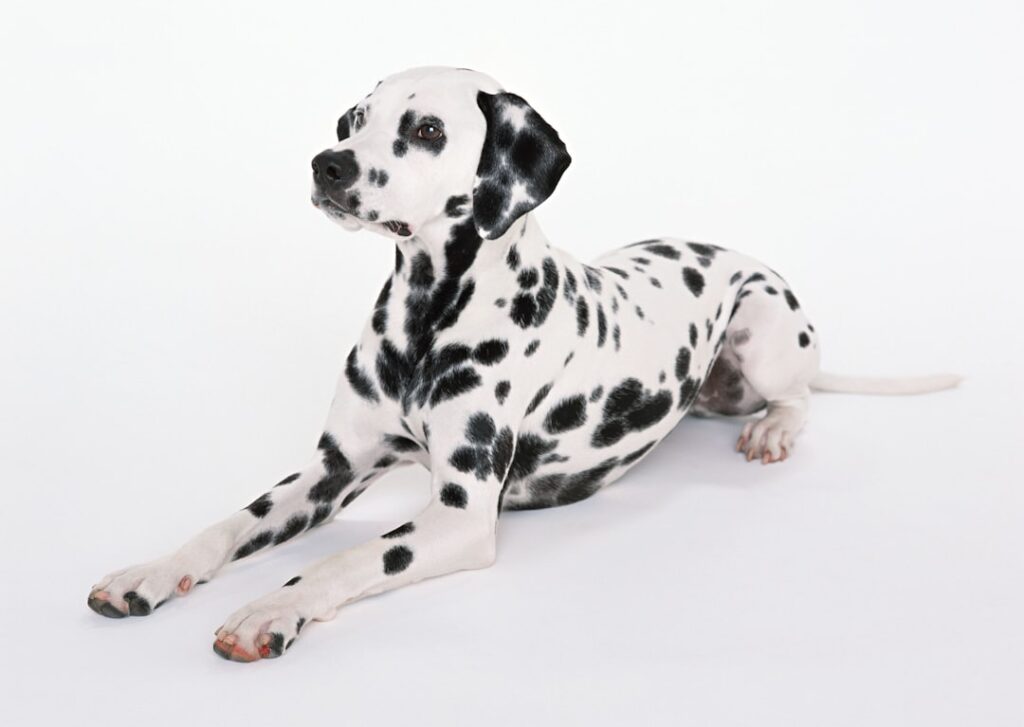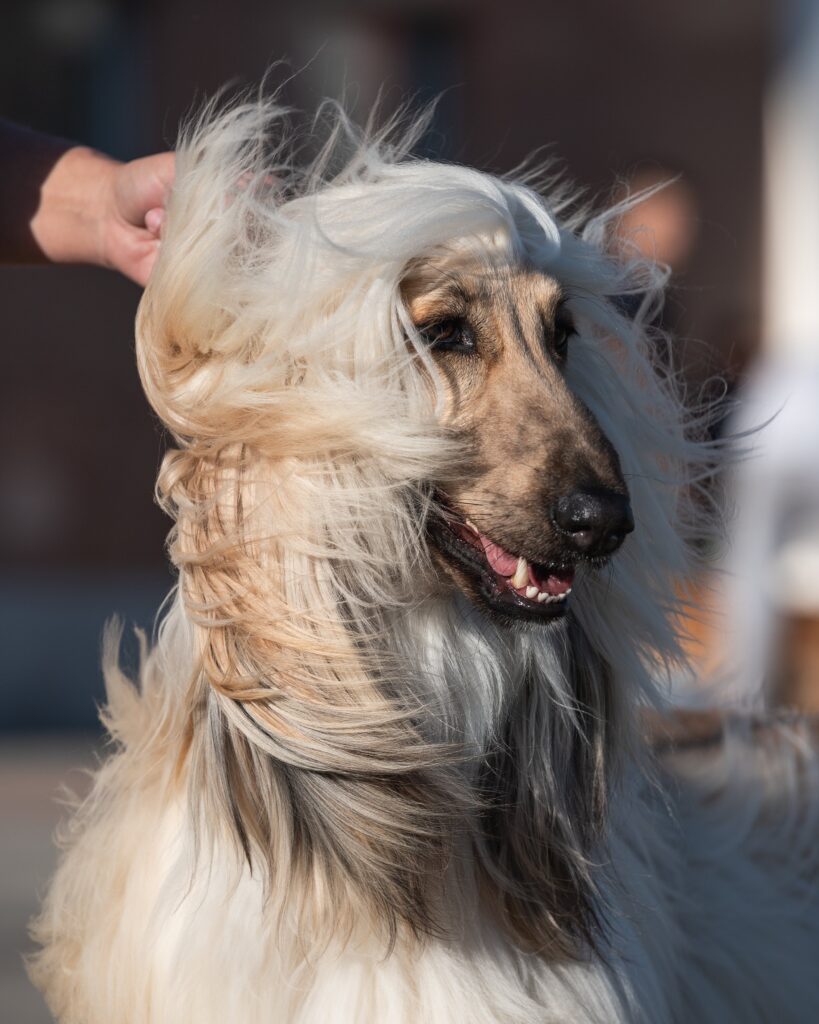The Dalmatian is a unique and striking breed known for its distinctive coat pattern of black or liver spots on a white background. They are medium-sized dogs with a well-muscled body and a friendly and outgoing personality. Dalmatians have been popularized through various forms of media, such as movies and books, which has contributed to their popularity as pets.
Dalmatians are known for their energetic and playful nature, making them great companions for active individuals or families. They have a strong desire to please their owners and are highly trainable. However, they do require regular exercise and mental stimulation to prevent boredom and destructive behavior.
History and Origins of Dalmatians
The exact origins of the Dalmatian breed are unclear, but they are believed to have originated in the region of Dalmatia, which is now part of modern-day Croatia. They were historically used as carriage dogs, guard dogs, and firehouse mascots due to their alertness and agility.
Dalmatians gained widespread popularity in the 19th century when they were used as carriage dogs by the British aristocracy. Their striking coat pattern made them highly sought after as status symbols. They were also used as firehouse mascots because they were able to run alongside horse-drawn fire engines and clear the path for them.
Dalmatians have also been popularized through various forms of media. One of the most famous examples is the Disney movie “101 Dalmatians,” which tells the story of a couple who own a large number of Dalmatians. This movie sparked a surge in popularity for the breed, leading to an increase in demand for Dalmatian puppies.
Physical Characteristics and Appearance of Dalmatians
Dalmatians are medium-sized dogs with a well-muscled body and a sleek and athletic build. They typically weigh between 45 to 70 pounds and stand at a height of around 19 to 24 inches at the shoulder.
The most distinctive feature of Dalmatians is their coat color and pattern. They have a short, dense coat that is white with black or liver spots. The spots are evenly distributed throughout the body and can vary in size and shape. The coat is easy to maintain and requires regular brushing to remove dead hair.
In addition to their coat pattern, Dalmatians have other unique physical features. They have a long, tapered tail that is carried with a slight upward curve. Their eyes are round and expressive, and their ears are set high on the head and are carried close to the skull.
Personality Traits and Temperament of Dalmatians
Dalmatians are known for their friendly and outgoing personality. They are social dogs that enjoy being around people and are generally good with children. However, they can be reserved or aloof with strangers, so early socialization is important to ensure they grow up to be well-rounded dogs.
Dalmatians are intelligent and eager to please, which makes them highly trainable. They respond well to positive reinforcement training methods and enjoy learning new tricks or commands. However, they can be stubborn at times, so consistent and patient training is necessary.
While Dalmatians are generally good with children, they may not be suitable for households with very young children. Dalmatians have a lot of energy and can be boisterous, which may not be suitable for small children who may accidentally get knocked over or injured during play.
Health Issues and Concerns for Dalmatians
Like all dog breeds, Dalmatians are prone to certain health issues. One of the most well-known health concerns in Dalmatians is urinary stones or bladder stones. Dalmatians have a unique metabolism that makes them prone to developing urate stones, which can cause urinary blockages and other urinary tract issues. It is important to feed Dalmatians a diet that is low in purines to help prevent the formation of these stones.
Dalmatians are also prone to certain genetic conditions, such as deafness and hip dysplasia. Deafness is relatively common in Dalmatians, with around 30% of the breed being affected. It is important to have Dalmatian puppies tested for deafness at a young age so that appropriate training and accommodations can be made.
Hip dysplasia is a condition where the hip joint does not develop properly, leading to pain and mobility issues. It is important to choose a reputable breeder who tests their breeding dogs for hip dysplasia to reduce the risk of this condition in puppies.
To maintain good health in Dalmatians, it is important to provide them with regular exercise and mental stimulation. They thrive on physical activity and enjoy participating in activities such as agility or obedience training. Regular veterinary check-ups and a balanced diet are also important for maintaining their overall health.
Training and Exercise for Dalmatians
Training is an essential part of owning a Dalmatian. They are intelligent dogs that require mental stimulation and structure in their lives. Without proper training, Dalmatians can become bored and may engage in destructive behavior.
Positive reinforcement training methods work best with Dalmatians. They respond well to praise, treats, and rewards for good behavior. Harsh or punitive training methods can be counterproductive and may lead to fear or aggression in Dalmatians.
In addition to training, Dalmatians require regular exercise to keep them physically and mentally stimulated. They are an active breed that enjoys activities such as running, hiking, or playing fetch. Daily walks or runs are essential for meeting their exercise needs.
Grooming and Care for Dalmatians
Dalmatians have a short, dense coat that is easy to maintain. They shed moderately throughout the year, with heavier shedding occurring during seasonal changes. Regular brushing with a soft-bristle brush or grooming mitt can help remove dead hair and keep their coat looking its best.
Dalmatians do not require frequent bathing unless they get particularly dirty or smelly. Over-bathing can strip the natural oils from their skin and coat, leading to dryness and irritation. It is important to use a gentle dog shampoo that is specifically formulated for their sensitive skin.
Other care needs for Dalmatians include regular nail trims, dental care, and ear cleaning. Their nails should be trimmed regularly to prevent them from becoming too long and causing discomfort or injury. Dental care is important to prevent dental disease, and regular ear cleaning can help prevent ear infections.
Feeding and Nutrition for Dalmatians
Feeding a balanced diet is important for maintaining the health and well-being of Dalmatians. They have unique dietary requirements due to their predisposition to urinary stones. Dalmatians have difficulty metabolizing purines, which are found in high amounts in certain foods.
To prevent the formation of urate stones, it is important to feed Dalmatians a diet that is low in purines. This typically involves feeding a commercial dog food that is specifically formulated for Dalmatians or other low-purine diets recommended by a veterinarian.
It is also important to monitor the weight of Dalmatians and ensure they maintain a healthy body condition. Obesity can increase the risk of certain health issues, such as joint problems or heart disease. Feeding the appropriate amount of food and providing regular exercise can help prevent weight gain in Dalmatians.
Socialization and Interaction with Other Dogs and People
Socialization is an important aspect of raising a well-behaved and well-adjusted Dalmatian. Early socialization helps them become comfortable and confident in various situations and environments. It is important to expose Dalmatians to different people, animals, sights, and sounds from a young age.
Positive experiences during socialization can help prevent fear or aggression towards strangers or other animals. It is important to introduce Dalmatians to new experiences gradually and in a positive manner. This can include taking them to puppy classes, visiting different places, and allowing them to interact with other friendly dogs.
Dalmatians generally get along well with other dogs if they are properly socialized. However, they may have a tendency to be dominant or assertive towards other dogs, especially those of the same sex. Early socialization and proper training can help prevent any potential issues with dog-to-dog interactions.
Choosing and Adopting a Dalmatian: Tips and Advice
When choosing a Dalmatian, it is important to consider factors such as your lifestyle, living situation, and the specific needs of the breed. Dalmatians require regular exercise and mental stimulation, so they are best suited for active individuals or families who can provide them with plenty of opportunities for physical activity.
It is also important to find a reputable breeder or rescue organization when adopting a Dalmatian. A reputable breeder will prioritize the health and well-being of their dogs and will provide you with information about the health testing that has been done on the parents. They will also be available to answer any questions you may have about the breed.
If you choose to adopt a Dalmatian from a rescue organization, it is important to ask about the dog’s history and any known health issues. Many rescue organizations will also provide behavioral assessments or training recommendations to help ensure a successful adoption.
Preparing for the arrival of a new Dalmatian in the home involves setting up a safe and comfortable space for them, providing them with the necessary supplies, and establishing a routine. It is important to have a secure yard or access to regular exercise areas for Dalmatians to burn off their energy. Providing them with toys, bedding, and other essentials will help them feel at home in their new environment.
In conclusion, Dalmatians are a unique and striking breed known for their distinctive coat pattern and friendly personality. They require regular exercise, mental stimulation, and proper training to thrive. By understanding their specific needs and providing them with the care they require, Dalmatians can make wonderful companions for the right owner.
If you’re interested in learning more about taking care of your dog’s teeth, check out this informative article on Taking Care of Your Dog’s Teeth. It provides valuable tips and advice on maintaining your dog’s dental health, which is essential for their overall well-being.



